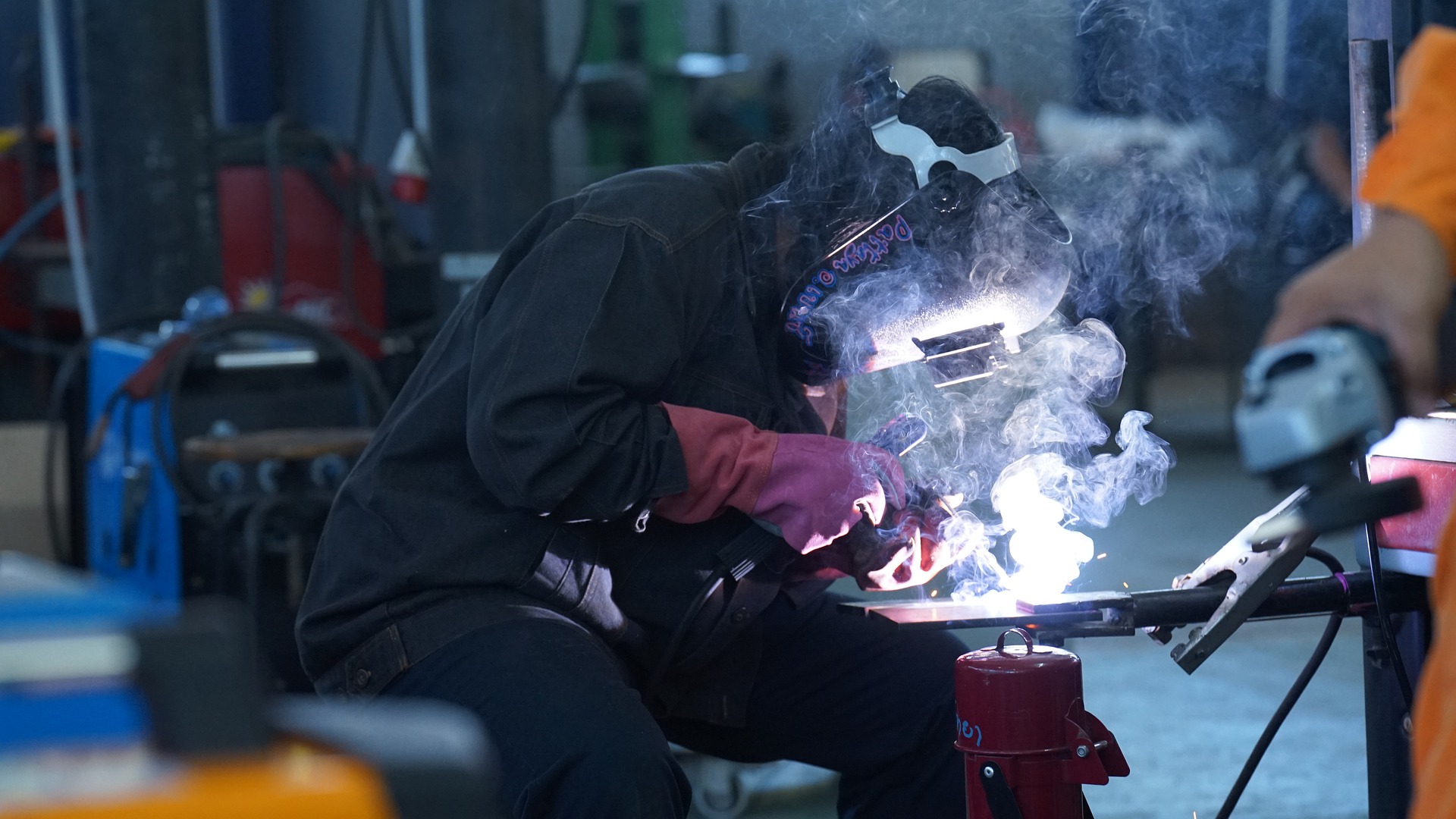Discover Welding Training Programs for Beginners in the UK
In the UK, individuals interested in starting a journey in welding can find a variety of training programs tailored for beginners. These programs offer essential skills and knowledge, paving the way for careers in welding and metal fabrication. Explore the opportunities where fabrication and welding companies thrive, and gain insight into the training available to help develop proficiency in this essential trade.

Comprehensive Overview of Welding Training Programs for Beginners
Welding training programs in the UK typically cover fundamental techniques including MIG (Metal Inert Gas), TIG (Tungsten Inert Gas), and arc welding methods. Most beginner courses start with basic safety procedures, equipment familiarization, and material preparation before progressing to hands-on welding practice. The curriculum usually includes theoretical knowledge about metallurgy, blueprint reading, and quality control standards.
Entry-level programs range from short-term courses lasting several weeks to comprehensive diplomas spanning one to two years. Many institutions offer flexible scheduling options, including evening classes and weekend sessions to accommodate different lifestyles. Students learn to work with various materials such as steel, aluminum, and stainless steel while developing precision and consistency in their welding techniques.
Assessment methods typically combine practical welding tests with written examinations covering safety regulations and technical knowledge. Successful completion often leads to recognized qualifications such as City & Guilds certificates or BTEC diplomas, which are highly valued by employers across the UK.
Key Locations for Welding Fabrication and Metal Fabrication
The UK’s industrial landscape offers numerous locations where welding and metal fabrication training programs are readily available. Major cities like Birmingham, Manchester, and Sheffield have strong manufacturing heritage and host multiple training facilities. These areas benefit from close proximity to industrial employers, providing students with excellent networking and employment opportunities.
Scotland’s central belt, particularly around Glasgow and Edinburgh, offers specialized programs focusing on heavy industry applications, including shipbuilding and offshore engineering. The region’s training centers often emphasize advanced welding techniques required for marine and energy sector applications.
Northern England, including areas around Newcastle and Leeds, provides programs tailored to the construction and infrastructure sectors. Many training centers in these regions maintain partnerships with local construction companies and engineering firms, facilitating work placement opportunities for students.
Wales offers welding programs with particular emphasis on automotive and aerospace applications, especially around Cardiff and Swansea. These locations benefit from proximity to major manufacturing facilities and research institutions, providing students with exposure to cutting-edge welding technologies.
Opportunities with Fabrication and Welding Companies
The UK’s fabrication and welding industry presents diverse career paths for qualified professionals. Large multinational companies such as BAE Systems, Rolls-Royce, and Jaguar Land Rover regularly recruit skilled welders for their manufacturing operations. These companies often provide additional specialized training and career progression opportunities.
Medium-sized fabrication companies focus on construction, infrastructure, and bespoke manufacturing projects. These employers typically offer varied work experiences, allowing welders to develop expertise across different applications and materials. Many such companies prefer hiring locally trained welders who understand UK safety standards and industry practices.
Small fabrication shops and independent contractors provide opportunities for welders to develop entrepreneurial skills while working on diverse projects. These environments often allow for greater creativity and problem-solving, helping welders build comprehensive skill sets that enhance their career prospects.
The renewable energy sector, particularly offshore wind and solar installations, presents growing opportunities for qualified welders. These projects require specialized skills and certifications, often commanding higher wages and offering long-term career stability.
| Training Provider | Course Type | Duration | Estimated Cost |
|---|---|---|---|
| City & Guilds Centers | Level 1 Diploma | 6-12 months | £2,000-£4,000 |
| Local Further Education Colleges | BTEC Certificate | 3-6 months | £1,500-£3,000 |
| Apprenticeship Programs | Level 2 Apprenticeship | 12-18 months | Employer-funded |
| Private Training Centers | Intensive Courses | 4-8 weeks | £3,000-£6,000 |
| Construction Industry Training Board | Specialized Programs | Variable | £2,500-£5,000 |
Prices, rates, or cost estimates mentioned in this article are based on the latest available information but may change over time. Independent research is advised before making financial decisions.
Training Costs and Financial Considerations
Welding training costs vary significantly depending on program duration, certification level, and training provider. Full-time diploma programs at further education colleges typically range from £2,000 to £4,000 per year for UK residents, while intensive private courses may cost between £3,000 and £6,000 for shorter durations.
Apprenticeship programs represent excellent value, as employers fund the training while paying apprentices a wage during their studies. These programs combine workplace learning with formal education, often leading to permanent employment upon completion.
Financial support options include government funding for eligible students, particularly those aged 19 and over or seeking career changes. Many training providers offer payment plans to spread costs over extended periods, making programs more accessible to diverse backgrounds.
Equipment costs should be considered alongside tuition fees, as students typically need personal protective equipment and basic tools. Some programs include equipment provision, while others require students to purchase their own gear, adding approximately £500 to £1,000 to total training costs.
Certification and Industry Standards
UK welding certifications follow European standards, with qualifications recognized internationally. The most common certifications include EN ISO 9606 for welder qualification and ASME codes for specialized applications. These certifications require practical testing under controlled conditions, demonstrating competency in specific welding processes and positions.
Regular recertification ensures welders maintain current skills and knowledge of evolving industry standards. Most certifications require renewal every two to three years, involving practical tests and continued professional development activities.
Specialized industries may require additional certifications, such as underwater welding qualifications for marine applications or nuclear industry clearances for power plant work. These advanced certifications command premium wages but require extensive additional training and experience.
Welding training programs in the UK provide comprehensive pathways for beginners entering this essential skilled trade. With diverse program options, strong industry connections, and growing employment opportunities across multiple sectors, welding offers stable career prospects for dedicated learners. Success requires commitment to safety, continuous skill development, and maintaining current certifications, but the investment typically yields rewarding long-term career opportunities in this vital industry.




